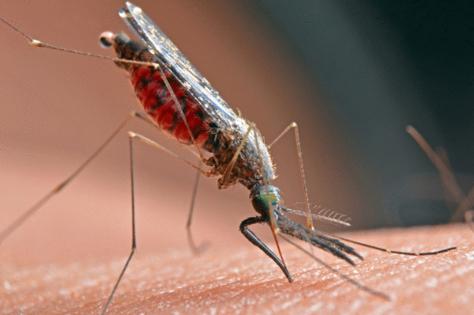West Nile virus surges in Missouri, KC cases reported; officials urge vigilance
Published in Health & Fitness
KANSAS CITY, Mo. — Health officials are warning residents to remain on guard after Missouri experienced an increase in human West Nile virus cases so far this year.
The Missouri Department of Health and Senior Services is urging residents to remain vigilant and take precautions, as surveillance data shows a marked increase in cases in Missouri and the United States compared to previous years, according to a news release from the agency.
As of Oct. 4, there have been 16 human cases of West Nile virus in Missouri, resulting in 15 hospitalizations and three deaths. Additional cases are under investigation.
In the Kansas City area, two cases were reported — one in Clay County and one in Jackson County — and both patients required hospitalization, according to data from the health department.
In Kansas, there have been a total of 19 cases and one death so far this year, according to data from the Kansas Department of Health and Environment.
The West Nile virus remains the most common mosquito-borne illness in the United States, Missouri health officials said. Most people infected do not experience symptoms, but one in five develops flu-like symptoms such as fever, headache or body aches.
In rare cases, the virus can cause serious health problems like swelling of the brain or spinal cord or paralysis. Older adults or people with weakened immune systems are especially vulnerable.
“West Nile virus is a serious public health concern, and this year’s increase in cases is a reminder that we must remain vigilant,” George Turabelidze, a St. Louis pediatrician who serves as state epidemiologist at the Missouri health department, said in the news release. “We are asking all Missourians to take simple but effective steps to protect themselves and their families.”
The jump in West Nile virus cases comes as Kansas City’s summers are stretching further into fall. Summer now ends about seven days later than it did in the early 1970s, according to Climate Central, a climate research group.
Other cities in the region are seeing longer summers too: St. Joseph, 9 days later; Springfield, 8 days later; Joplin, 15 days later; Columbia, 9 days later; St. Louis, 11 days later; Topeka, 7 days later; and Wichita, 11 days later.
This creeping summer heat carries health ramifications, including a longer allergy season and an extended period when disease-carrying mosquitoes are active, according to Climate Central.
Health officials urge using insect repellent with DEET, picaridin, or IR3535, dressing in long sleeves and pants, eliminating standing water around homes, fixing torn window and door screens and reporting dead birds to the Missouri Department of Conservation’s online Wildlife Health Event reporting tool.
More information about the West Nile virus symptoms, treatment and prevention is available on the U.S. Centers for Disease Control and Prevention.
©2025 The Kansas City Star. Visit at kansascity.com. Distributed by Tribune Content Agency, LLC.










Comments